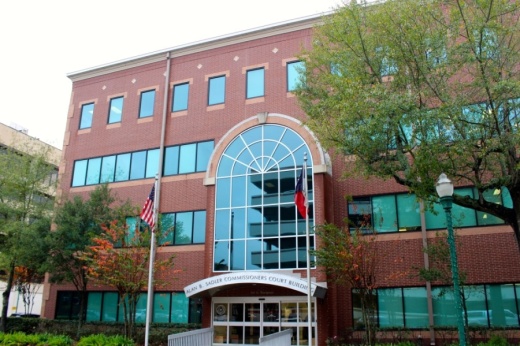The meeting capped a week of FY 2020-21 budget planning workshops by county officials. Public hearings and final votes on the budget and proposed tax rate will be held Aug. 21.
The proposed $0.4412 property tax rate represents around a 1.41% decrease over the rate of $0.4475 per $100 valuation adopted last summer for FY 2019-20 and a 5.46% drop over the rate of $0.4667 per $100 valuation set from FY 2016-17 through FY 2018-19. Based on the proposed rate, the owner of a $100,000 home would pay around $441 in property taxes.
Court members were split in their choice of a FY 2020-21 rate during the July 31 meeting. County Judge Mark Keough and Precinct 3 Commissioner James Noack voted 2-3 for a lower effective tax rate of $0.4319 per $100 valuation, while Commissioners Mike Meador, Charlie Riley and James Metts voted 3-2 in favor of the $0.4412 rate. The effective, or no new revenue, tax rate is one that generates an equal amount of tax revenue year over year and can be lowered annually as local property valuations increase.
After the 3-2 vote, commissioners also discussed the implications of potentially abstaining from the August sessions, during which the finalized county budget and rate would be approved. While only three of five members are typically required to conduct regular Commissioners Court business, Texas code requires four of five members to be present when approving new tax rates. If that higher quorum is not met, the county would be forced to adopt its effective tax rate—a situation which played out last fall in Harris County.
"I hope and pray that nobody on this court is considering doing that. To me, it would be an embarrassment of county government," Meador said after the idea was raised.
Noack also questioned County Attorney B.D. Griffin on whether abstaining from the final tax rate session would represent court members "abdicating" their responsibility as an elected official. Griffin said commissioners' duties include attending hearings and voting on issues brought to the court.
Meador said he believed such a move would qualify as neglect of duties, while Keough said pushing for the effective rate could be viewed as support for taxpayers in a time of economic downturn.
“We can call it neglecting; we can call it abdicating authority,; we can also call it advocating for the people so that there is no new address of monies they have to [write a check for]. I don’t care how small it is," Keough said. "We’ve got 11%, 12% unemployment; you’ve got breweries that are out of business; you drive down the street, and you see store after store after store closing. ... Everything we need to do this to show the people we’re on their team is right here, right now."
Commissioners eventually approved setting the final budget and tax rate hearings for Aug. 21 at 9:30 a.m. The court also recognized Meador for participating in his last budget planning process; Meador officially became the county's longest-serving commissioner last year after 26 years of service and is set to retire after his term expires.
"I'd like to say, thank everybody, department heads, elected officials. My gosh, it's been an honor and a privilege for me," Meador said before receiving a round of applause.





